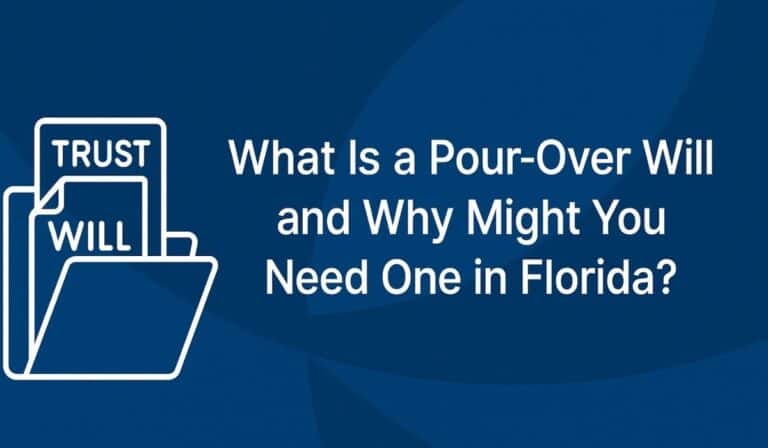Should You Notify Your Insurance Company When You Put Your Home in a Trust? (Florida Guide)
Transferring your Florida home into a revocable living trust is a smart way to avoid probate and keep things simple for your family. But there’s one step many owners miss: telling the insurance company. Here’s what to update—and how to do it—so you don’t accidentally create a coverage gap.
Why insurers care when title moves to a trust
When you deed your home to your trust, the legal owner changes. Your homeowners carrier underwrites the policy based on who owns, occupies, and is responsible for the property. If the policy only lists you individually—but the trust now holds title—some carriers could deny parts of a claim or delay payment until the paperwork is corrected.
Good news: For most Florida homeowners with a revocable living trust, this is a simple administrative update.
How to list the trust on your policy (most common setup)
- Keep the people as the Named Insureds. You (and your spouse, if applicable) generally remain the Named Insured(s) to preserve personal liability coverage and continuity for claims.
- Add the trust as an Additional Insured / Additional Interest. Ask the carrier which term they use. The goal is to reflect that the trust owns the home while you still live there and need liability protection.
- Mirror this on umbrella insurance. If you carry a personal umbrella, ask your agent to add the trust there too so liability protection stacks properly.
- If there’s a mortgage/HELOC: Confirm the mortgagee clause is still correct after the deed to the trust and that your escrow, if any, continues paying the premium.
Tip: Provide the insurer with your policy number, property address, deed date, and the trust’s exact legal name (spelling matters).
Documents your insurer may request
- Recorded deed transferring the property to the trust (a copy is fine).
- Certification/Abstract of Trust instead of the full trust (Florida allows a certification to confirm key terms without revealing private details).
- Driver’s license or utility bill (sometimes requested to confirm occupancy).
Florida-specific considerations
Homestead & insurance
Putting your homestead into a properly drafted revocable trust does not by itself remove homestead status for tax or creditor purposes. Insurance discounts are separate from the property tax homestead; your insurer mainly cares about ownership and occupancy. Keep your mailing and billing addresses consistent and promptly update any escrow info.
Flood insurance and condos
- Flood (NFIP or private): Make sure both the individuals and the trust are shown as insureds/interest as your agent recommends; ownership should match the deed.
- Condo/HOA: Update your HO-6 or walls-in coverage and confirm the association’s master policy still aligns with your unit’s new titling.
Renting, vacancy, or renovations
If use changes (short-term rental, extended vacancy, major renovation), tell your agent. Trust ownership plus a use change can trigger different endorsements or even a different policy form.
What to say when you call your agent (script)
“We transferred title of our primary residence at [address] to [Exact Trust Name] on [date]. Please keep [Your Name(s)] as the Named Insured(s) and add the trust as an Additional Insured/Additional Interest (your term). Confirm the declarations page and any umbrella reflect this, and send updated documents. Our lender is [Lender]—please confirm the mortgagee clause is still correct.”
Common mistakes to avoid
- Removing your individual name from the policy and listing only the trust—this can reduce or complicate liability coverage.
- Not updating the umbrella—leads to gaps at higher limits.
- Forgetting the lender—escrow or mortgagee clauses can misroute notices or delay claim payments.
- Not matching names exactly—the trust name on the policy must match the deed.
Frequently asked questions
Do I need a new policy?
Usually no. Most carriers simply endorse the existing policy to add the trust.
Will my premium change?
Typically not for ownership changes alone. Premiums change more often due to coverage, claims history, or carrier-wide rate filings.
Do I have to send the whole trust?
Generally no. Ask to use a Certification of Trust that confirms authority and identity without disclosing private terms.
If you have questions about titling your Florida homestead in a trust—or want us to coordinate the insurance updates—we’re happy to help. Contact Bart Scovill, PLC through our website’s contact form to get started.
Contact Us For More Information

Or Call 941-365-2253 for a Free Consultation
NOTE: The use of the Internet or this form for communication with the firm does not establish an attorney-client relationship. Confidential or time-sensitive information should not be sent through this form.







